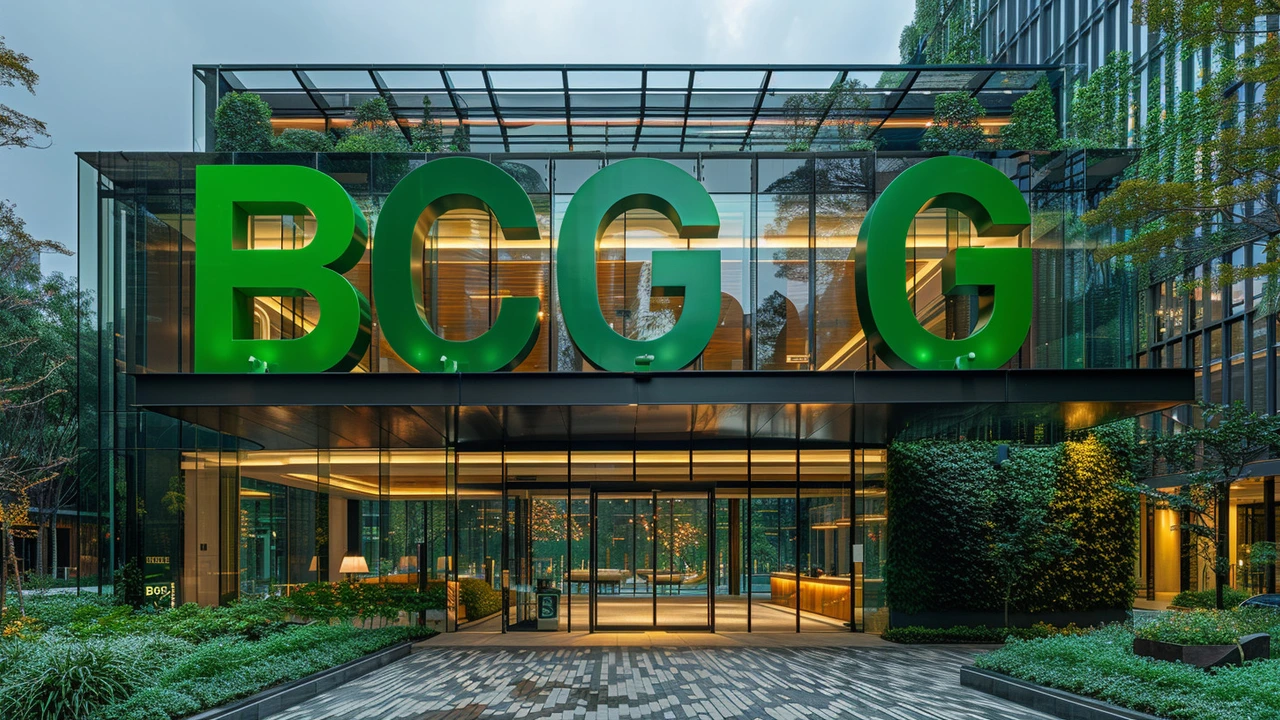BCG's Strategic Agreement with Twelve Aims to Revolutionize Aviation Fuel

BCG's Commitment to Sustainable Aviation Fuel
Boston Consulting Group (BCG) is making waves in the sustainability sector with its recent deal to purchase sustainable aviation fuel certificates (SAFc) from Twelve, a pioneering cleantech company. This partnership aligns with BCG's overarching ambition to become a net-zero emission company by 2030. Not only does this move signal a significant step for BCG in reducing its carbon footprint, but it also underscores the potential of technological innovation in supporting global sustainability efforts.
The Partnership's Scope and Goals
Scheduled to run from 2026 to 2029, the agreement is poised to curtail over 4,000 metric tons of CO2 emissions. Achieving this reduction is intrinsically linked to the transformative methods employed by Twelve. Their E-Jet SAF—a power-to-liquid jet fuel synthesized from CO2, water, and renewable electricity—offers up to 90% lower lifecycle emissions than conventional jet fuels. This substantial cut in emissions places the partnership among the more promising ventures aimed at combating climate change in the aviation sector.
BCG's commitment extends beyond simply purchasing these SAFc. The company is leveraging a digitally tracked and verified Book & Claim chain of custody ledger system to ensure transparency and accountability. Through this innovative system, BCG will be able to substantiate its greenhouse gas reduction claims in climate disclosures, furthering its dedication to integrity and environmental responsibility.
Pioneering Net-Zero and Beyond
BCG's ambition isn’t limited to net-zero emissions by 2030; the consulting giant also aims to become climate positive post-2030. Achieving these lofty goals requires both innovative partnerships and the integration of cutting-edge technologies. The deal with Twelve is part of this broader strategy, showcasing how corporations can adopt clean energy solutions and contribute to a lower-carbon economy.
The story of this partnership also shines a light on Twelve’s pioneering role in the production of sustainable aviation fuel. Twelve's technology, transforming renewable energy and CO2 into usable fuel, epitomizes the type of groundbreaking advancements needed to address global carbon challenges effectively. By producing E-Jet SAF, the company demonstrates how existing waste products can be repurposed to create high-value, sustainable commodities.
Financial and Environmental Impact
The financial stipulations of the agreement have not been disclosed, but the anticipated environmental impact is substantial. Beyond the direct reduction of CO2 emissions, the partnership serves as a model for other large corporations, encouraging them to actively seek innovative solutions to their sustainability challenges.
BCG is not new to the arena of sustainable aviation fuel. The company previously inked a deal with World Energy, another notable player in the SAF sector. That agreement is expected to result in a tremendous reduction of 100,000 metric tons of CO2 over the next five years. Together, these partnerships illustrate BCG's steadfast dedication to achieving substantial and measurable climate action.
Future Prospects and Industry Influence
The aviation industry is under immense pressure to reduce its carbon emissions, with growing regulatory demands and customer expectations. Partnerships like the one between BCG and Twelve demonstrate that achieving significant CO2 reductions is feasible and can be economically viable. These collaborations highlight the crucial role corporate initiatives play in facilitating the adoption of cleaner technologies.
The future looks promising for sustainable aviation, particularly as more companies recognize the potential financial and environmental returns. By embracing innovations like Twelve’s E-Jet SAF, the industry can gradually pivot towards more sustainable operations. If widely adopted, these technologies can not only mitigate the climate impact of air travel but also set a precedent for other sectors grappling with their carbon footprints.
Technology’s Role in Sustainable Development
The technological innovation behind Twelve’s fuel production process transforms CO2, usually considered a pollutant, into a valuable commodity. This reimagining of waste material presents a significant leap forward in sustainable development. Such advancements serve as a testament to how science and technology can offer effective environmental solutions.
Moreover, the Book & Claim system utilized for tracking and verifying the transaction provides another layer of credibility. This digital ledger ensures that all processes surrounding the fuel's production and purchase are transparent, offering verifiable data to back up claims of emission reductions. Transparency in sustainability efforts is crucial, particularly as public and regulatory scrutiny intensifies.
Conclusion: A Step Towards a Greener Future
BCG's agreement with Twelve marks an important milestone in the journey toward a greener aviation industry. By investing in groundbreaking technology and embracing a forward-thinking approach, BCG is setting the stage for other corporations to follow. This partnership not only promises to deliver significant emission reductions but also emphasizes the importance of collaboration in tackling global climate challenges.
As we move closer to 2030, the urgency to adopt sustainable practices increases. Agreements such as the one between BCG and Twelve underscore the necessity of immediate action and continued innovation. These efforts demonstrate how committed and collaborative strategies can lead to tangible environmental benefits, paving the way for a more sustainable future.